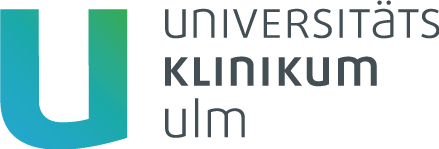The Laboratory of Molecular Psychosomatics at the Department of Psychosomatic Medicine and Psychotherapy and the Department of Internal Medicine 1 offers:
PhD students (f/m/d)
The University Hospital Ulm and its employees stand for a modern and high quality patient care, excellent university research and medical education focused on the future as well as apprenticeships in attractive professional fields. The requirements for this are qualified and committed employees.
as part of DFG sponsored project beginning as soon as possible limited for three years. The Title of the project is:
The role of circulating small extracellular vesicles in chronic psychosocial stress/PTSD-related inflammation.
Chronic psychosocial stress/trauma is a major burden of modern life and poses a significant risk factor for many somatic and affective disorders. Although the pathophysiological mechanisms behind the development of posttraumatic stress disorder (PTSD) are not fully understood so far, an increasing number of preclinical and clinical studies indicate that stress-induced inflammation is involved in disease development. Therefore, all factors facilitating an individual’s immune activity are likely to increase their stress/ trauma vulnerability.
A rather novel factor implicated in inflammatory modulation are small extracellular vesicles (sEVs, exosomes), which have recently been identified to have a vital function in propagating inflammation after severe physical trauma. Specifically, the latter is associated with the release of an increased amount of sEVs with altered cargo profile from endothelial cells, which locally and systemically propagate inflammation by transferring pro-inflammatory mRNAs and barrier-destabilizing miRNAs to other endothelial cells. In contrast to the role of sEVs in physical trauma, the sEV functions in the pathogenesis of psychosocial stress-related disorders, like PTSD are still elusive.
The aim of this project is therefore to explore the role of sEVs in the pathophysiology of chronic psychosocial stress/PTSD-related inflammation.
The role of circulating small extracellular vesicles in chronic psychosocial stress/PTSD-related inflammation.
Chronic psychosocial stress/trauma is a major burden of modern life and poses a significant risk factor for many somatic and affective disorders. Although the pathophysiological mechanisms behind the development of posttraumatic stress disorder (PTSD) are not fully understood so far, an increasing number of preclinical and clinical studies indicate that stress-induced inflammation is involved in disease development. Therefore, all factors facilitating an individual’s immune activity are likely to increase their stress/ trauma vulnerability.
A rather novel factor implicated in inflammatory modulation are small extracellular vesicles (sEVs, exosomes), which have recently been identified to have a vital function in propagating inflammation after severe physical trauma. Specifically, the latter is associated with the release of an increased amount of sEVs with altered cargo profile from endothelial cells, which locally and systemically propagate inflammation by transferring pro-inflammatory mRNAs and barrier-destabilizing miRNAs to other endothelial cells. In contrast to the role of sEVs in physical trauma, the sEV functions in the pathogenesis of psychosocial stress-related disorders, like PTSD are still elusive.
The aim of this project is therefore to explore the role of sEVs in the pathophysiology of chronic psychosocial stress/PTSD-related inflammation.
We offer:
- attractive salary and benefits are provided according to the German TV-L system (65%)
- Offers to reconcile family and career, e.g. in-house kindergarten and crèche
- staff residence and subsidized public transport
- Company health promotion (e.g. cooperation with various fitness studios)
- Wide range of corporate benefits/privileges
An ideal candidate has:
- a background in Psychoneuroimmunology or Cell Biology
- sound knowledge in behavioral neuroscience, stress physiology and immunology
- extensive laboratory experience
- experience in working with laboratory animals (preferably with mice); FELASA B certificate would be helpful but not required
- Master (overall grade 2.0 or better according to the German grading system or equivalent)
- excellent English speaking and writing skills; German language abilities are helpful but not required
- high motivation level to participate in goal-oriented research approaches
- strong communication skills
- excellent team working skills
 Contract: limited
Contract: limited
 Level of employment: part-time
Level of employment: part-time
 application deadline: 30.06.2025
application deadline: 30.06.2025

